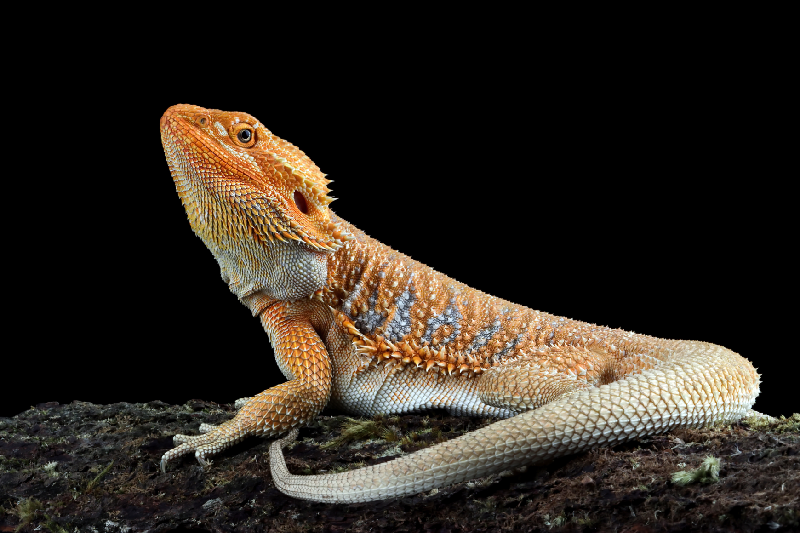Why is My Bearded Dragon Not Eating?
-

- by Admin
- Dec 05, 2024

If you’ve noticed your bearded dragon turning down their meals, it’s understandable to feel concerned. Bearded dragons are known for their hearty appetites, so when they start skipping meals, it could be a sign that something’s amiss. This guide is here to help you understand the potential reasons behind this change in behavior and emphasize the importance of consulting with a vet experienced in the care of exotic animals.
Common Causes for Loss of Appetite in Bearded Dragons
Understanding why your bearded dragon may not be eating is the first step toward ensuring they get back on track. Several factors, ranging from environmental changes to health issues, can influence their eating habits.
Environmental Stress
Bearded dragons are sensitive to their surroundings. Changes in their habitat, such as adjustments in temperature, lighting, or the introduction of new decorations, can cause stress, leading to a loss of appetite. Ensuring their environment closely mimics their natural habitat is key to keeping them comfortable and eager to eat.
Brumation
Brumation, a form of hibernation for reptiles, occurs in the wild under signs of environmental stress (i.e. drought, temperatures below 50 or lack of food supply). During this period, bearded dragons will eat less or stop eating altogether as their metabolism slows down. Knowing the signs of brumation including lethargy, eating less, hiding or sleeping more, can help you provide the care your pet needs during this time.
Health Concerns
Health issues, including parasitic infections, impaction, and dental problems, can also make eating uncomfortable or even painful for your bearded dragon. Regular health checks are essential to catch and address these issues early.
Age Related Diet Changes
Bearded dragons need to eat daily for the first 10-12 months of life to support their growing body. After 10 months of age, many bearded dragons convert from eating a meal every day to eating every 48-72 hours. As long as your adult bearded dragon remains active and eats every 2-3 days he/she should be ok. Yearly health examinations are highly advised.
The Impact of Diet on Eating Habits
A balanced diet is crucial for a bearded dragon’s health and well-being. Adult bearded dragons are primarily herbivores, meaning they should be consuming the majority of their diet in green leafy vegetables. An improper diet can lead to nutritional deficiencies or obesity, both of which can affect your pet’s appetite. Incorporating a variety of foods into your bearded dragon’s diet, including vegetables, a small amount of fruits, and appropriate insects, ensures they receive all the necessary nutrients. A monotonous diet can lead to boredom and a subsequent loss of appetite.
0 Comments:
Leave a Reply